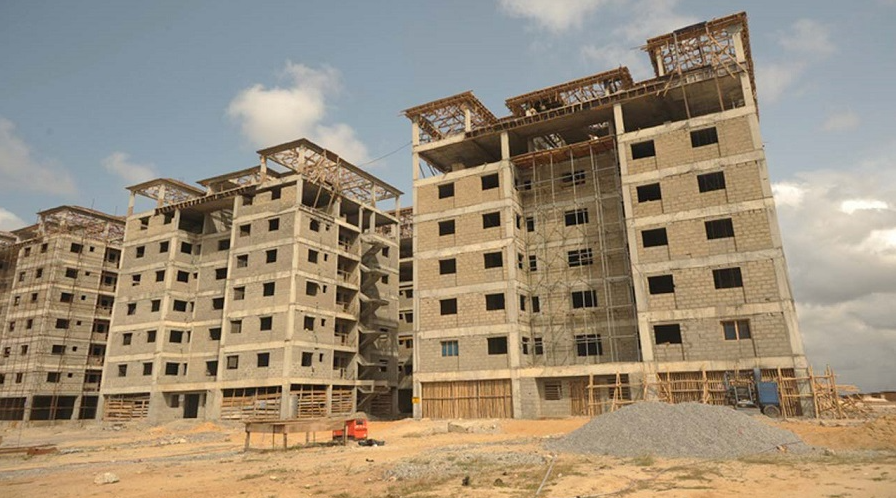The National Bureau of Statistics (NBS) has announced that the real estate sector has climbed to the third-largest sub-sector in Nigeria’s economy, up from the fifth position, following a recent Gross Domestic Product (GDP) rebasing exercise.
The shift underscores the growing significance of infrastructure development, urbanization, and property investment in the country.
According to NBS data, the real estate sector contributed 5.20% to Nigeria’s GDP in the first quarter of 2024.
The rebasing exercise, which recalibrated economic rankings, placed the sector behind grain crop production and trade, which retained their positions as the first and second-largest industries.
The new rankings highlight a significant change in Nigeria’s economic structure: Grain Crop Production; Trade; Real Estate; Telecommunications; Crude Petroleum and Natural Gas; Construction; Food, Beverages, and Tobacco
The updated hierarchy reflects a reduced dependence on crude oil and natural gas, signaling a shift towards a more diversified economy.
The GDP rebasing exercise integrates data from new and previously unreported economic activities, providing a more accurate representation of Nigeria’s economic landscape.
The NBS selected 2019 as the new base year, describing it as a period of “relative economic stability” compared to subsequent years affected by significant economic shocks.
READ ALSO: Nigeria’s unemployment rate drops to 4.3% in Q2 2024 – NBS
The agency avoided 2020–2022 as base years due to the economic disruptions caused by the COVID-19 pandemic, global energy price fluctuations, and other macroeconomic challenges. This aligns with guidelines from the International Monetary Fund (IMF).
The rebasing also incorporates data from updated surveys and sector-specific administrative records, giving a clearer view of structural changes within the economy.
The rise of the real estate sector to third place highlights its growing role in Nigeria’s development. Experts attribute this to increased demand for housing, urbanization, and investments in property infrastructure.
Economic Analyst Dr. Funmi Adebayo commented, “The elevation of real estate as a key contributor to GDP reflects an economy that is gradually diversifying. It also demonstrates the government and private sector’s focus on non-oil sectors to drive growth.”
Urban Development Expert, Engr. Musa Idris added, “Real estate’s prominence shows the importance of urban planning and investment in sustainable housing. However, this growth must be matched with policies to address housing deficits and affordability issues.”
The rebased GDP figures, set to be officially unveiled by the end of January, are expected to provide further insights into Nigeria’s economic evolution. The shift in rankings points to the increasing prominence of non-oil sectors, with the NBS emphasizing the need for accurate data to guide policy making and investment strategies.
The NBS’s October 2024 announcement to rebase both the GDP and Consumer Price Index (CPI) aimed to reflect current economic realities and further account for structural changes in the economy.
As Nigeria continues its journey towards economic diversification, the rise of real estate underscores a pivotal shift, signaling opportunities for growth in sectors beyond oil and gas.

 Health5 days ago
Health5 days ago
 Entertainment6 days ago
Entertainment6 days ago
 Crime5 days ago
Crime5 days ago
 Education7 days ago
Education7 days ago
 Health7 days ago
Health7 days ago
 Comments and Issues6 days ago
Comments and Issues6 days ago
 Football6 days ago
Football6 days ago
 Latest6 days ago
Latest6 days ago

